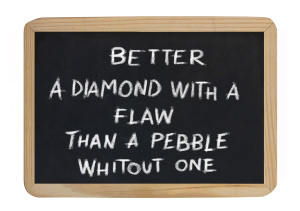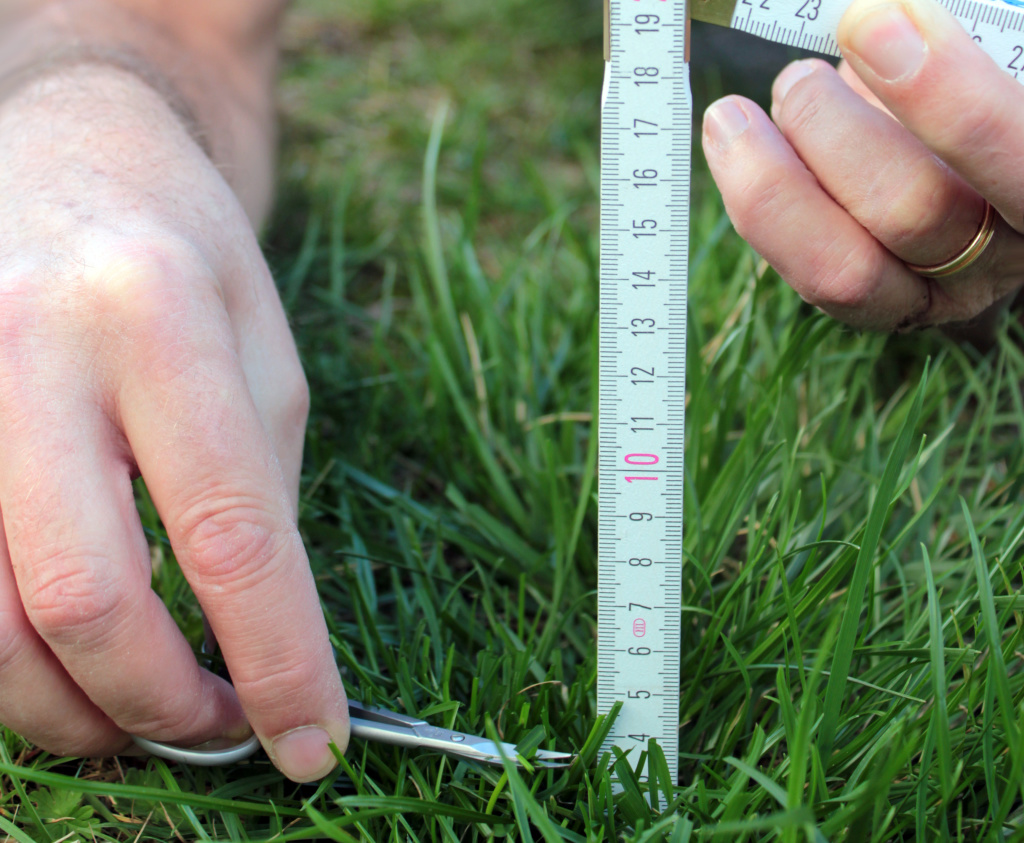Are you a perfectionist? Even with just some parts of your life? I admit that on a bad day, if the dishwasher is not loaded “correctly” I will unload, then “properly” reload the dishes into the dishwasher. On these days, I can’t release that feeling of frustration: the angst of repeatedly telling family members how to rinse and properly stack the dishes, the reasons why my rules are such, and the benefits of those rules. Really, is a little stuck-on food going to put my family in harm’s way? The worst-case scenario is that I put the non-clean item back in the sink, to be properly washed the next time around.
On a good day, I will leave it be, and be grateful for having someone else in the house who is willing to do the dishes, who does not expect me to do all the housework on my own, who has consideration for me and my time. Which of these days would you rather have: the one that adds negative energy, more work, and potentially strained relationships, or the one with gratitude, less work, and compassionate relationships.
Is perfectionism bad? What happens when you do things so that everything is just right, regardless of how realistic it is, or how much strain it puts on you? What do you lose when you push yourself to do things perfectly instead of well or great? You lose a lot of time, energy, and effort on something that doesn’t need it. Think of all the other things – brilliant things – you could be doing with that time, energy, and effort!
 So, why are we perfectionists? Perhaps it’s because we believe society expects us to have lofty goals. Or maybe the question is why do we strive for the impossible if we know rationally that no one can be perfect? We torture ourselves physically, mentally, and emotionally to work towards an unattainable result. Why do we think we need to be perfect?
So, why are we perfectionists? Perhaps it’s because we believe society expects us to have lofty goals. Or maybe the question is why do we strive for the impossible if we know rationally that no one can be perfect? We torture ourselves physically, mentally, and emotionally to work towards an unattainable result. Why do we think we need to be perfect?
We do so because we are social beings. We want to be accepted, appreciated, revered, and/or validated as worthy individuals. That drives us to push further than needed so that we can get the promotions, or have the best kid in the neighborhood, or just so we feel liked or valued. However, the truth is that being a perfectionist often has more costs than benefits.
Does this mean we shouldn’t strive for higher goals? Should we just give up on being better people? No! There is a difference between perfectionism and healthy high achievement. The difference is determined in expectations, energy, and esteem. Healthy high achievers have realistic expectations, positive energy, and high esteem of themselves. Perfectionists have unattainable expectations, negative energy, and low esteem of yourself and others.
Expectations
Expectations or standards are about what we think should be done. Perfectionists strive relentlessly for extremely high standards that are unattainable. Although many of us acknowledge that there is no such thing as perfect, perfectionists still strive to do things perfectly. If we push that limit further, we can do more damage than good by pursuing the unreachable. The healthy high achiever understands how far they can push themselves, what their capabilities are, and can more realistically gauge how high they can aim.
Energy
When we make such high standards for ourselves, then strive and fail to meet them, we experience negative energy. The consequences we experience when we push ourselves too far can come out in our emotions (depression or anxiety), our thoughts (thinking that the job isn’t good enough or thinking negatively about other people), or our behaviors (losing sleep, neglecting relationships). The negative energy we experience will often outweigh the benefits of attempting or completing an arduous task. Healthy high achievers acknowledge that a challenging goal is only worthwhile if it has more benefit than consequence in the long run.
Esteem
Your self-esteem is also an indication of whether you are a perfectionist or a healthy high achiever. When you judge your esteem or worth based on what you do and how well you do it, and you have unattainable expectations, your esteem will naturally suffer. This becomes an unhealthy cycle, because every time you fail to meet your expectations, judgment and shame creep in, which leads you to believe that you need to aim higher to be better. Healthy high achievers base their self-esteem on who they are, and acknowledge what they do as a complement to that.
If you don’t know if you are a perfectionist, the next time you find yourself struggling with a difficult task ask yourself these questions:
Are my standards unreasonably high and unattainable?
Do I lose more than I gain in attempting to reach my goals?
Do I base my view of myself on how close I am in meeting these goals?
If you’ve answered yes to these questions, then yes, you might very well be a perfectionist. But don’t leave it at that. We are all perfectionists to some degree. The key is to understand where to set the bar.
 Once you know you are a perfectionist -now what? Here are some things you can do.
Once you know you are a perfectionist -now what? Here are some things you can do.
Create new Rules for your goals:
Examine the current rules and standards you have in your life right now. Ask yourself if these three rules apply to you: accurate, reasonable, and flexible. For example, let’s say one rule you have is that your house should be clean at all times. Is it accurate that not keeping my house completely tidy will cause the loss of true friendships? Is it reasonable for me to expect my house to be tidy all the time when I have two children who are untidy and 1 hour a day to commit to housekeeping tops? Is there flexibility in my expectations in tidiness (do I allow my house to not be tidy in certain situations)?
Make a Pros and Cons list of your perfectionism:
Figure out how your perfectionism is and isn’t working for you and make lists. Compare the lists: which one is longer, more substantial, more important? Let’s bring back the housekeeping example. Some ideas of Pros would be: the house is pleasant to look at; less clutter means less stress; I’m always ready for visitors. Some ideas for Cons would be: cleaning takes away time I could be spending with my kids; I get upset when the house doesn’t stay as clean as I made it; I am tired after cleaning; my family says they feel they can’t “live” in the house; I focus on finding things that aren’t clean in my house and can’t focus on anything else until it’s done.
Find factors in your self-worth that aren’t quantitative:
Part of the reason we fall into perfectionistic behavior is that we look for ways to “measure” ourselves. Try this – take time to make a list of the ways that you are great/amazing/wonderful that can’t be measured. Is it in the best “most genuine” cuddles you give to your children, or being able to make great dishes that might not be exactly perfect but taste like love in food, or naturally having critical thinking skills even when under pressure. Keep this list on you. When you get stuck in perfectionism, pull out the list and review. Then, acknowledge that your self-worth can’t be truly measured by how well you do certain things.
We are all perfectionists at times, and to varying degrees. But so long as we recognize our tendencies we can pull ourselves back and control them – instead of letting them control us. Perfect, no. Better, yes!



